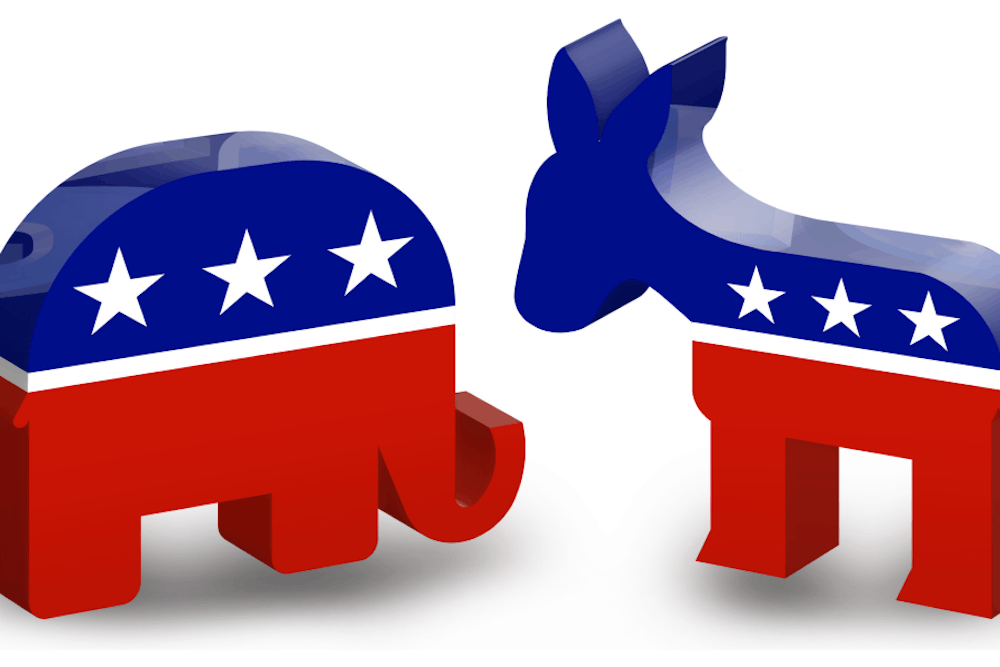Andrew's Assessments
By Andrew Geisler, For The Miami Student
2016 presidential politics has officially begun with four individuals getting into the race for the White House. Since success as a candidate relies on having a strong rationale to run - a good answer to the "why should you be president?" question - looking at their first moves can be an easy way to decide who has given themselves a real chance to win.
The first in was Ted Cruz, a freshman Senator from Texas. Cruz chose to announce at Liberty University of Jerry Falwell fame, explicitly and implicitly promising to treat America as a Christian nation. Cruz has chosen the siren song, "restore America," approach to winning the Republican nomination. This idea relies on turning out the third of the country who considers themselves conservative and hoping almost nobody else turns out.
Cruz got in early to try to keep out other Christian conservatives. It remains to be seen if this will work, but it shouldn't. Cruz is the most disingenuous candidate in the field. One who poses as a populist when he's as elite as it comes.
Second in was Senator Rand Paul of Kentucky. Paul's roll out was notable for who he did not explicitly talk about. For a while now, Paul, whose father is a famous libertarian leader in America, has been trying to straddle the line between conservative and libertarian. Paul did not give his father a big shout out in his campaign speech - he simply thanked his mother and father - and has tried to identify himself more with the "constitutional conservative" crowd than his father's friends.
This will be a problem whenever Paul decides to really talk about foreign policy. Will he be an isolationist? Or will he chart a realist course? This remains to be seen and will determine his ceiling in the race. At least Paul has a clear rationale, though - he is running for the cause of liberty - love it or hate it.
The third in is the albatross. The second Hillary Clinton candidacy began similarly to her first. She announced via a video on social media pretty much right when the Masters began on Sunday - showing she really gets America - and announced she was taking a bus tour through the American Midwest.
Clinton's problems and strengths have been well established, but the one discussed less often is her rationale problem. As the hilarious SNL video mocking her announcement shows, it is hard to say exactly why she wants to be president beyond the fact that it is the feather in the cap of a long political career. Her agenda seems to be the same old boilerplate liberal ideas, but why is she the one who needs to be the leader of her party? Experience, maybe, but she better decide quickly lest she become the Democrat version of Mitt Romney.
Finally, Marco Rubio got into the race the day after Hillary. Rubio's rationale is the most optimistic and the one communicated with the most clarity. Rubio, with a nod to his neoconservative friends, wants this to be the "new American century." He's communicating to those who still believe this is the greatest country on earth - the last best hope language of the Reagan years.
Unlike the other Republicans in the field so far, Rubio is the second choice of many conservatives. He's not particularly polarizing. Nobody really hates him but the Paulites. He's also, as I've detailed on these pages before, the best positioned Republican candidate because of how he communicates and the contrast he provides.
Presidential elections are won by the candidate with a real positive message for the future. All the other merits of their campaigns aside, think about the one line rationales for the winning candidates for the last thirty plus years.
Enjoy what you're reading?
Signup for our newsletter
In 1980 it was morning in America. In 1988 President George H.W. Bush talked about 1,000 points of light. President Clinton's three-pronged message in 1992 went beyond the economy and into an idea about the future. It ran "Change versus more of the same. It's the economy, stupid. Don't forget about healthcare." The 2000 election went to George W. Bush who was a "compassionate conservative." President Obama famously won his races with the simple "change" message in 2008 and "forward" message in 2012.
Whoever seizes on this important forward looking role in the 2016 campaign will likely win. A positive message for the future does a lot to frame your campaign in a winning way. Can another Republican? That remains to be seen. But Democrats are in trouble if the Clinton machine doesn't figure out how to do this again. And fast.




